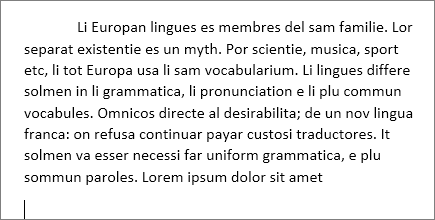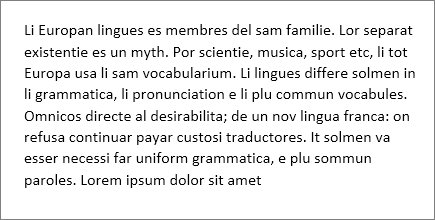There are essentially two paragraph indent styles, Hanging and First Line indents. The indent styles are applied to a paragraph where sentences are typed to the end without pressing the Enter key. When you press the Enter key, it starts a new paragraph, and the indent style over again. If you need to start another line within the paragraph that continues the format, use Shift+ Enter. This creates a new line without ending the paragraph.
Hanging indent (also known as second line indent)
A Hanging indent, also known as a second line indent, sets off the first line of a paragraph by positioning it at the margin, and then indenting each subsequent line of the paragraph.
First Line Indent
A First Line indent only indents the top line of a paragraph, with subsequent lines staying at the margin.
No indent
Selecting None will remove a Hanging or First Line indent from the selected paragraph. All lines of a paragraph will be at the margin
Setting an Indent style
-
Select the text where you want to add a hanging indent.
-
Go to Home > Paragraph dialog launcher
-
Under Special, select one of the following indent styles:
-
Hanging
-
First Line
-
None
On Hanging and First Line indents, you can adjust the depth of the indent with the By field.
-
-
Select OK.
-
Select the paragraph where you want to add a hanging indent.
-
Go to Format > Paragraph.
-
Under Special, select one of the following indent styles:
-
Hanging
-
First Line
-
None
On Hanging and First Line indents, you can adjust the depth of the indent with the By field.
-
-
Select OK.
-
Select the text where you want to add a hanging indent.
-
Go to Home > Paragraph dialog launcher
-
Under Special, select one of the following indent styles:
-
Hanging
-
First Line
-
None
On Hanging and First Line indents, you can adjust the depth of the indent with the By field.
-
-
Select OK.














